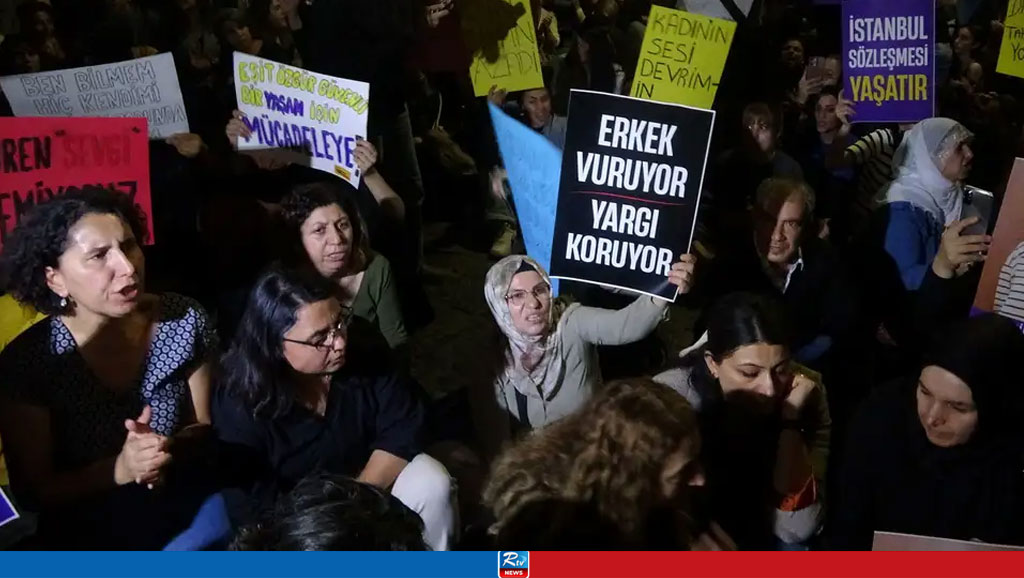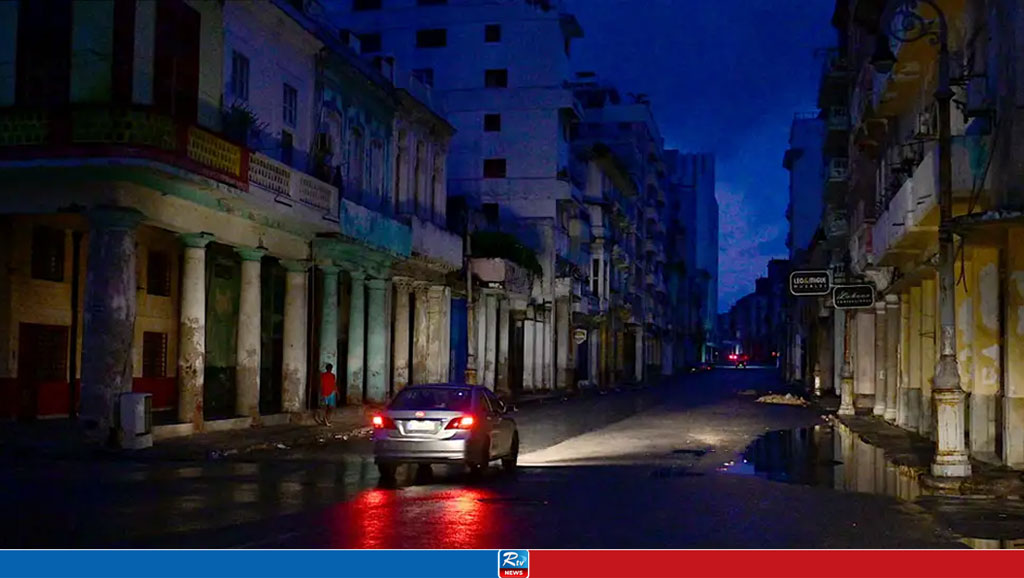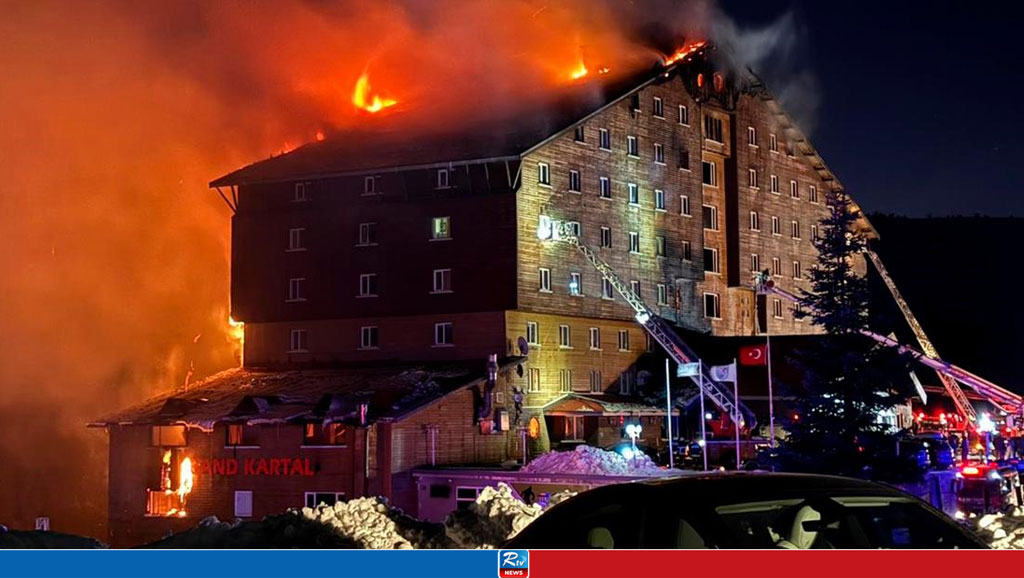No End to Femicides in Turkey

The number of women killed by men in Turkey has gone up in 2024. Women's rights groups say that the government is fostering a sense of impunity in an already very patriarchal society.
On a sunny fall day in Istanbul, around 300 young women gathered in the Kadiköy district on the Anatolian banks of the Bosporus to protest against violence against women and girls. Turkey's Young Feminists Federation had called for the demonstration after a series of brutal murders.
On October 4, a 19-year-old man stabbed and beheaded two young women in Istanbul, Turkey's largest city with a population of well over 15 million. After committing the second murder at the Theodosian Walls, he killed himself — in front of many passers-by.
A week earlier, a young policewoman had been killed while on duty. In August, the case of a missing schoolgirl kept the country in suspense for weeks until her lifeless body was found by a river in southeastern Anatolia.
Turkish television channels often broadcast programs about violence against women and girls: Women surveyed on the street express their fear; parents say they panic when their daughters come home late.
Violence against women has taken on a new dimension
"Violence against women is not new," said Esin Izel Uysal, a lawyer for We Will Stop Feminicides Platform of Turkey told DW. "But it has taken on a new dimension. The crimes are becoming more brutal, and the victims and perpetrators are getting younger."
The platform recorded 295 murders of women by men and 184 suspicious deaths in the first nine months of this year. In 2023, there were 315 murders and 248 suspicious deaths. If women allegedly fall from balconies or windows or commit suicide for no known reason, the cases are considered suspicious.
Uysal said that violence against women is on the rise, particularly the number of suspicious deaths, which rose by 82% between 2017 and 2023. She said that violence usually took place in the victims' homes but that violence on the streets was also increasing. She added that in most cases the perpetrators were partners, ex-partners, or relatives. This year, 65% of the perpetrators asked said that they had killed women because they had said they wanted to separate or refused to marry them.
Rights groups blame the patriarchal system
Young feminists blame the patriarchal system for the violence. In Istanbul, the protesters chanted: "The problem is the patriarchy! The problem is the government!" They accuse the government's religion-driven conservative family policies of being in part responsible for the escalation of violence.
Pro-government Islamist brotherhoods have repeatedly called for existing laws that are supposed to protect women to be abolished and for alimony payments to be limited, as have parties in Turkish President Recep Tayyip Erdogan's ruling alliance.
Under pressure from these conservative forces, in 2021 Turkey withdrew from the Council of Europe Convention on Preventing and Combating Violence Against Women and Domestic Violence, better known as the Istanbul Convention, as it was agreed there. The government justified the move by claiming that the convention promoted homosexuality and threatened traditional family values.
Erdogan has argued in the past that Turkish legislation offers enough protection for women even without the Istanbul Convention. But in the wake of ongoing criticism, he recently announced that he would tighten the penal code.
Many human rights activists believe that the penal code suffices, but the problem is that it is not always applied. They criticize the government for having focused its prosecution efforts in recent years on members of the opposition rather than on dangerous and violent criminals.
Turkish prisons are overcrowded
The Turkish government has targeted critics since the attempted coup of 2016. Prisons are crowded with political prisoners. Some have been convicted on charges of alleged membership of a terrorist organization or "spreading terror propaganda." Others have been held in custody for years without trial.
To create space in the overcrowded prisons, Ankara has changed the rules of law enforcement several times in recent years. Many violent offenders are released before their term is up if certain conditions are met. During the COVID-19 pandemic, the government, arguing that there was a risk of infection, released almost 100,000 people, but no political prisoners.
For society, it seems as if some criminals enjoy impunity. An ex-policemen who kidnapped his ex-girlfriend and tortured her for days eventually released her, warning that she should be careful. If he couldn't have her, no one else would, he threatened. He was sentenced to two and a half years in jail. But he was released after two months in a halfway house and once again threatened the woman. She posted a cry for help on social media. He was able to obtain a ban on her post being spread because it supposedly violated his rights.
Uysal says it is such impunity that encourages men to commit violence against women, "because they know that they will be released after a few days or months."
Comments
China Launches New Generation Assault Ship 'Sichuan'

Plane Crash in South Korea: 179 Out of 181 Onboard Killed

19 Pakistani Soldiers Killed in Border Clash with Afghan Forces

Devastating Road Accident in Ethiopia: At Least 66 Dead

Afghanistan Taliban Targets "Several Points" in Pakistan, Tensions Increase

China's Trade Tensions With US Remain High Ahead of Trump Inauguration

China Firing Preemptive Trade War Shots at Trump


 Live Tv
Live Tv





